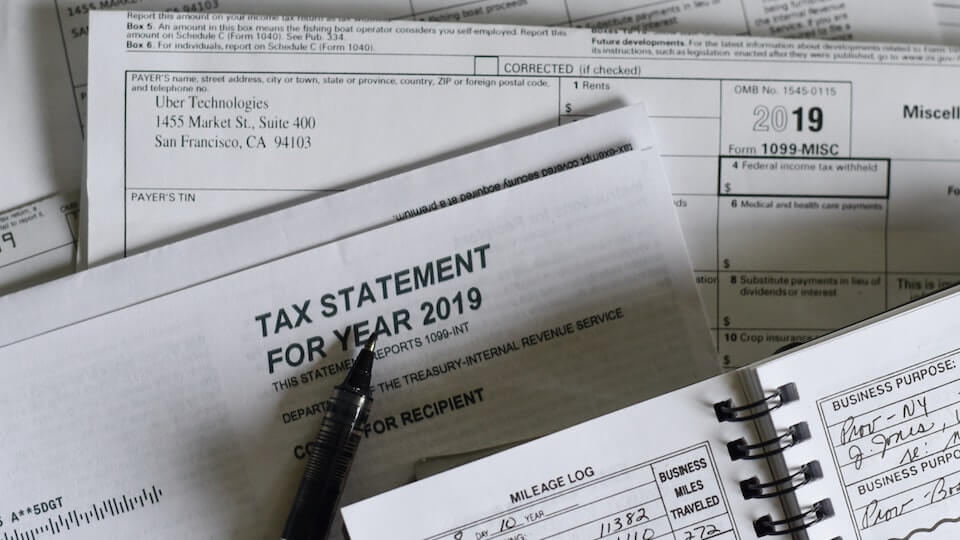Income for Life Retirement Series
We all strive to retire and not just be financially secure but live in the lifestyle we have become accustomed to. In this Retirement Planning education series, we tackle many major aspects offering "financially simple" tips that will help in your quest... from investing, to insurance, to health care, to social security.Income for Life Retirement Series #2: Manage Your Spending
Last week I gave you the first strategy for securing income for life, comprised of three buckets to stretch your dollars as far as they will go. This next action to take in your retirement game plan is to manage your spending.Income for Life Retirement Series #6: Earn Extra Income
Last time we discussed delaying your Social Security Benefits to help you as you work toward maintaining an income for life and one of the ways to do that is to earn extra income until you reach age 70. While you may still be ready to hang up your hat on your career well before then, that doesn’t mean you can’t prolong taking those benefits by taking on a side job.Income for Life Retirement Series #8: Reduce Taxes on Retirement Accounts
If you hope to maximize the benefits from all your hard-earned retirement savings, you need to protect as much as you can from Uncle Sam. Fortunately, there are plenty of legal ways to do just that. It will take laying some groundwork and understanding exactly what the government looks for in order to reduce taxes on retirement accounts.Income for Life Retirement Series #12: Moving from Your Home
Downsizing, especially after the children are on their own, is a frequently used approach for managing your income for life. Reducing housing expenses can save tons of money. If you reside in a highly appreciated area where your home could be worth a lot of money, selling can free up a substantial amount of cash flow or even be used to wipe out debt. What is left over can then be added to your nest egg or even used to cover future long-term-care expenses. Keep in mind, if you are married you can protect up to $500k of your profit from capital gains taxes when you sell your home. If you single, it is half of that amount.Calculating The Wealth Gap
In the introduction to this series, we discussed some of the biggest fears that business owners face. As we move forward, I’m going to share several calculations with you that can help put your fears into perspective and even create plans to put them behind you. With that said, today’s post is all about the wealth gap. Not sure what that means? Basically, it’s the difference between where you currently sit, financially, and where you need to be to live the lifestyle that you want to live during your retirement.Do Taxes Matter? Understanding How Taxes Impact Your Wealth Gap
Over the last few weeks, I have been going over some of the things that keep business owners up at night. More specifically, I’ve been discussing the wealth or retirement gap that we all face. In today’s entry, I want to continue with this subject by answering a very important question… do taxes matter? The short answer is yes, of course. But as I dig deeper, I’m going to show you how taxes impact your wealth gap and your ability to accumulate the wealth you will need for your retirement. Join me as I unpack all of the pertinent details of this subject.What Is the True Value of Your Business?
As business owners, we put a lot of blood, sweat, tears, and, yes, money into our businesses. So, when I said that you should NOT include your business when totaling your assets for your retirement wealth gap calculation, many people bristled at that statement. However, there’s a good reason why you shouldn’t include your business in that calculation. Basically, you don’t know what it’s worth. Even if you’ve had a business appraisal done, it’s still only a ballpark figure. In today’s entry, we are going to look at some of the factors that directly influence the value of your business. Join me as I discuss how to find the true value of your business!How to Calculate The ROI of Investment Property
As we continue our deep dive into bridging the retirement wealth gap, I want to take a look at a subject that affects so many of us. There are so many people who deal with this type of asset that it is one of the largest types of asset holdings in the investment world. I am speaking, of course, of real estate. Up to now, we’ve tackled how to calculate our wealth gap, business ROI, and even taxes at the time of sale. But in today’s entry, we will focus on how to calculate the ROI of investment property.Assuming An ROI for Your Wealth Gap Calculations
Whenever we talk about calculating our retirement wealth gap, a common question comes up. This is the question of investment assumptions. What should we assume for our ROI when making these calculations? This can be a complicated issue because one of the ways to find the answer is to look at historic data across market indices.The Calculation: The Wealth Gap Formula Put To Work
Over the past few weeks, we’ve spent a lot of time talking about your retirement wealth gap. We’ve covered everything from inflation and normalizing your income to assuming the ROI of your business and your investment portfolio. Now that we’ve laid all of the groundwork, it’s finally time to identify the wealth gap formula. Today’s article will pull everything we’ve learned to this point, together and show you exactly how to calculate your own retirement wealth gap.Why Your Lifetime Savings Rate Matters
Do you ever think about how much money you’re putting into savings? What percentage of your lifetime income have you saved? The truth is, most of us don’t consider these things. But saving money for your future is one of the most important things you can do. That’s why I’ve chosen this topic for today’s post. Join me, as I explain why your lifetime savings rate matters!How to Relinquish Control of Your Business
As entrepreneurs, we have a well-deserved reputation of being control freaks. We care so much about our business and our clientele that we would rather run ourselves ragged, handling every part of our business, rather than risk someone else making a mistake in it. In fact, I recently had a client tell me, “Justin, I can handle most things as long as my hands are on the wheel.” I believe that’s a sentiment that most of us can relate to. However, giving up control of your business might be the best thing you could ever do for it. I know it hurts to think about it, but that’s why today’s entry is all about how to relinquish control of your business.













